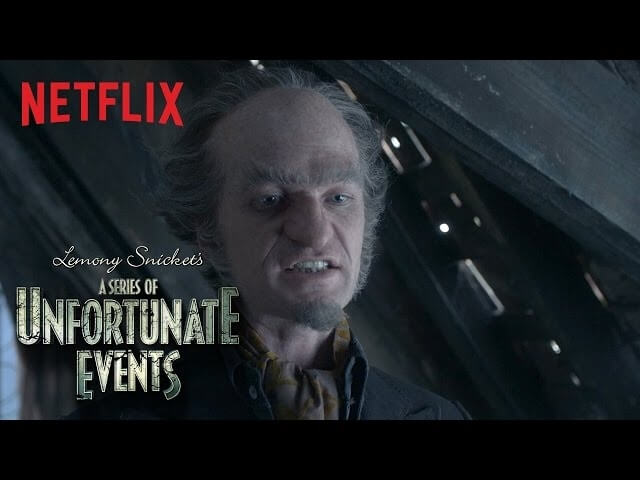Neil Patrick Harris on channeling Wile E. Coyote for A Series Of Unfortunate Events

These days Neil Patrick Harris is known for being something of a song and dance man. After all, he followed up his run on How I Met Your Mother with a trip to Broadway and then tried his hand at an ill-fated variety show. So what will his interpretation of Count Olaf, the Lemony Snicket villain in Netflix’s new take on A Series Of Unfortunate Events, bring? Song and dance, of course, but also a lot of playfulness and an impressively large prosthetic nose.
The new incarnation of Lemony Snicket’s (the pen name for Daniel Handler) tale about the misfortunate about a trio of orphans is a corrective to the 2004 movie, which starred Jim Carrey in the role of Olaf. Handler didn’t get to see that project through to completion and neither did Barry Sonnenfeld, who returns, alongside Handler, as executive producer and director; both are now fully involved. A Series Of Unfortunate Events premieres early next year, on Friday, January 13. We got some (gory) details from Harris earlier this fall.
The A.V. Club: How did you approach Olaf? Did you just draw from the text? Or did you take other inspirations to build your version of this character?
Neil Patrick Harris: I mostly drew from the text. I wanted it to be as true to the material as possible given that Daniel Handler is actively involved in this iteration, and that Barry Sonnenfeld, who was involved in the movie, is now involved in it again. I was enamored with the fact that they were wanting this to be as true to the ideas of the story as possible. I didn’t really have any vested interest in doing the sort of NPH version of Olaf. Plus, I hadn’t really read the books before so it was all fresh and new to me. I wasn’t one that had read it and chewed on it and thought, “This is how I would do it if it were me.” I just thought, “What an interesting character.” He looked nothing like me, so then I was thinking in a Lon Chaney kind of way—how fun would it be to get lost physically in a character and be straight-up horrible, just awful without recourse, without self-reflection. So through that, I started thinking about Wile E. Coyote and about people who are just bad, delusional kind of people.
AVC: But that Wile E. Coyote thing is to continuously come up with these plans and blowing up—
NPH: Blindly thinking that he’s gonna finally do it this time and then he fails, and then he tries again and again and again and again. Because the darkness and the evilness that is in Olaf—I don’t want potential viewers to think that it’s horror-movie darkness. It’s delusional darkness, right? He thinks that when he leaves any building, there will be throngs of adoring fans wanting his autograph, and so he drinks boxed wine and has these henchmen around that don’t quite know what to say around him. He just sort of wanders in his own happy existence. And I think that’s where the comedy comes from.
AVC: It must be fun to play this over-the-top actor part of him as well, yes?
NPH: Decadent.




























![Rob Reiner's son booked for murder amid homicide investigation [Updated]](https://img.pastemagazine.com/wp-content/avuploads/2025/12/15131025/MixCollage-15-Dec-2025-01-10-PM-9121.jpg)











